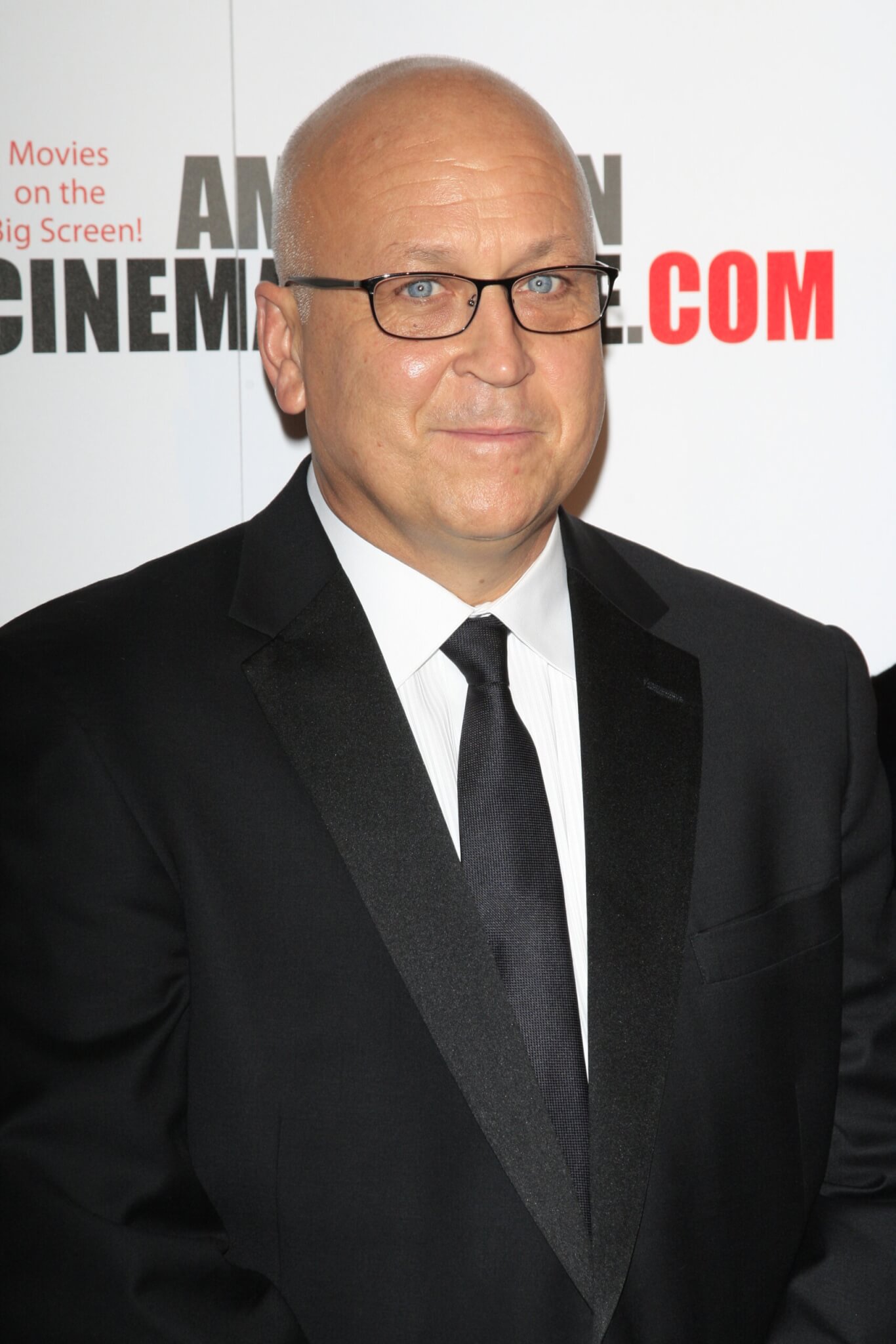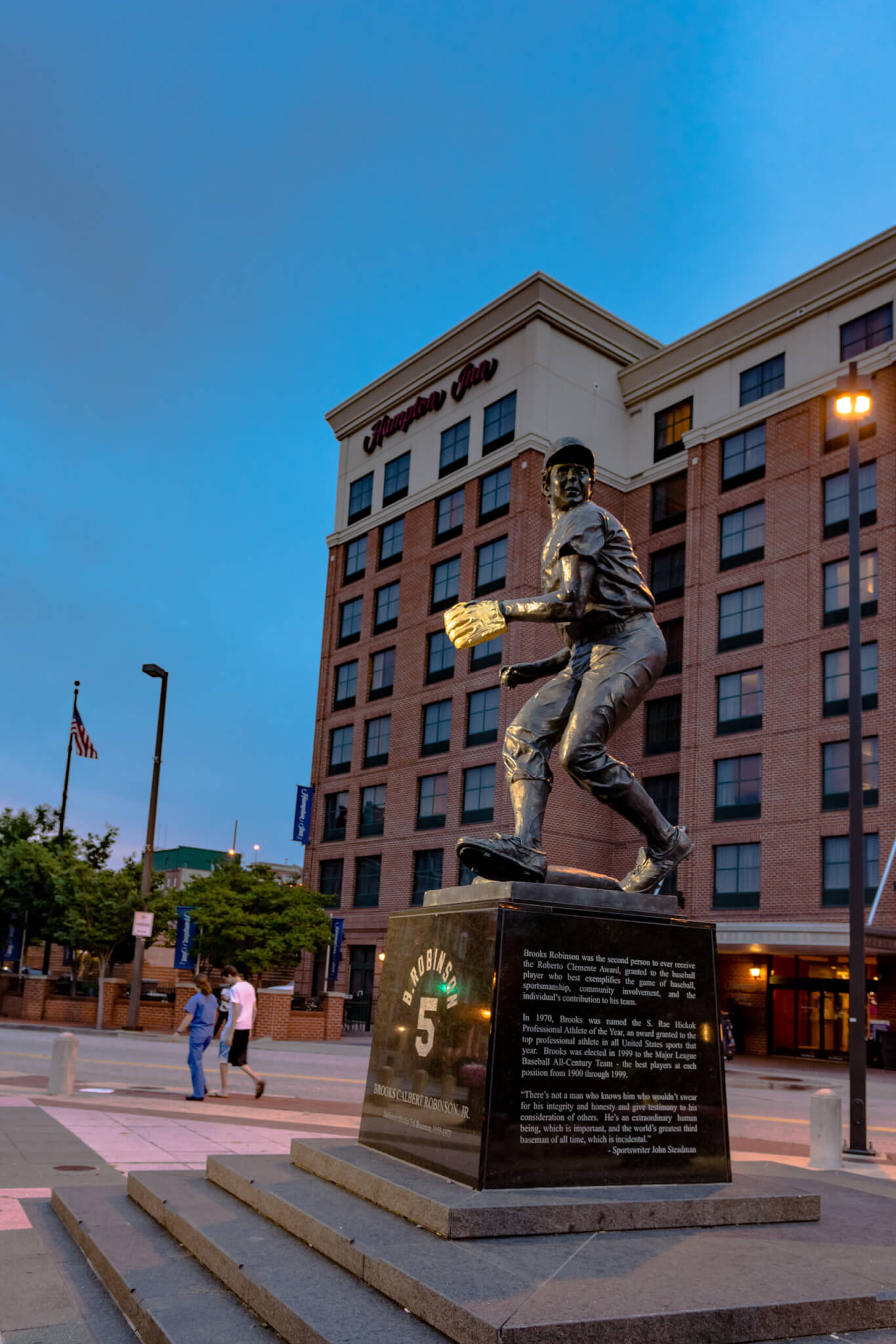The Baltimore Orioles are one of the oldest and most storied franchises in all of Major League Baseball (MLB). Although the Orioles were an original American League team, the team bounced around for the early part of the 20th century before finally settling back in Baltimore in the mid-1950s. In all that time, the Orioles have delivered three World Series titles and featured some of MLB’s greatest and most exciting players. With three World Series championships, a loyal fanbase, and one of the oldest teams in MLB, which names deserve to be mentioned as the best Orioles players of all time?
While we’re speaking of great teams and passionate fans, a recent survey found that sports fans are willing to travel, and spend, just to see their favorite sports teams play in person. A recent survey of 2,000 self-identified sports fanatics looked at the measures fans are willing to go to just to see their favorite teams play live. The study found that 35 percent of sports fans have planned a vacation around watching their favorite teams play. Similarly, the survey found that respondents are willing to travel an average of five hours and 48 minutes plus spend nearly $765 for tickets to see their favorite team play.
If you are traveling to watch the Orioles play this summer, then you could be in for a more exciting brand of baseball, but not because of the reasons you might think. Researchers think climate change might be to blame for the recent home run surge in baseball. That’s right, a recent study finds that the rise in home runs could be due to warmer temperatures brought on by climate change. Researchers at Dartmouth College suggest that warmer, thinner air brought on by climate change and global warming is responsible for more than 500 home runs hit since 2010. The warm, thin air brought on by global warming impacts the way baseballs travel through the air, ultimately leading to more home runs from your favorite players.
So, just who are some of the greats that have run through Camden Yards? StudyFinds did the digging, consulting 10 baseball and sports websites in an effort to find the consensus best Orioles players ever. Our list comprises the five most frequently listed players from across these sites. As always, feel free to share your thoughts with us in the comments section below!
The List: Best Orioles Players of All Time, According to Sports Experts
1. Cal Ripken Jr. (1981-2001)
The top spot on the list of the best Orioles players of all time is reserved for none other than Cal Ripken Jr. Arguably one of the best shortstops in MLB history, Cal Ripken Jr. played for the Baltimore Orioles for a staggering 20 years and holds the record for the most consecutive starts in MLB history at 2,632.

“Ripken is one of the greatest mixes in MLB history of a player who had both an incredible peak, and unfathomable longevity. He, of course, owns the MLB record for most consecutive games played a 2,632. But Ripken — who spent his entire 21-year career with the Orioles — was the 1982 American League Rookie of the Year Award, a two-time AL MVP, a two-time Gold Glove Award winner, an eight-time Silver Slugger Award winner and a 19-time All-Star. Ripken checked in at No. 3 on our countdown of the greatest shortstops in MLB history, and he’s the best player in the history of the Orioles franchise. His No. 8 was retired in 2001, his final MLB season,” writes Audacy.
“If there’s a face of the franchise, it’s Cal Ripken Jr. We all know about Ripken’s consecutive game streak, but beyond his incredible durability, he was a great player. Ripken leads the Orioles in several categories, including games, plate appearances, hits, doubles, HRs, runs, RBI, and WAR. In addition, his career accolades are numerous. He won rookie-of-the-year in 1982 and made the all-star team every year from 1983 through his last season in 2001. Add to that two gold gloves, eight silver sluggers, and two MVPs in 1983 and 1991. Despite his long career, Ripken’s Orioles only made the post-season three times. The first was the 1983 World Championship, and after that, not again until 1996 and 1997. Ripken performed well in the post-season, batting .336/.411/.455 in 124 PAs,” adds Pitcher List.
Cal Ripken Jr’s career started with a flurry as the Orioles great won Rookie of the Year. From there, Cal Ripken Jr went on to have one of the most iconic careers in the history of the Orioles franchise. His toughness, longevity, and charisma embody the city of Baltimore. And as one expert explains, Orioles fans were robbed of saying that one last goodbye to one of their favorite Orioles players of all time.
“The greatest shortstop of all-time was the last man to bat at Memorial Stadium and also the man who ‘built’ Camden Yards. He won two Gold Gloves and was an All-Star 19 times. The only time he played a full season and was not an All-Star was when he won Rookie of the Year. Ripken was on deck on October 6, 2001, in Baltimore awaiting his last at-bat, but teammate Brady Anderson, also playing his last game for the O’s, struck out to end the game,” explains Baseball Egg.
2. Brooks Robinson (1955-1977)
The only logical player that could follow Cal Ripken Jr. is Brooks Robinson. Considered by many to be the greatest defensive third basemen in history, Brooks Robinson spent his entire career in a Baltimore Orioles uniform.

“The man right behind Ripken in many of the Orioles record books is Brooks Robinson. Like Ripken, Robinson was a lifelong Oriole, spending parts of 23 seasons with the club. He made his debut in 1955 as a fresh-faced 18-year-old and in 1960 made his first of 18 all-star appearances. You can’t talk about Brooks Robinson without referring to his defense. He is considered by many the best defensive third baseman of all time and can back it up with an incredible 16 gold gloves. In 1964, Robinson was the AL-MVP after hitting .317 with 28 HRs and a league-leading 118 RBI,” explains Pitcher List.
16 Gold Glove Awards is an amazing accomplishment but that only begins to tell the story of Brooks Robinson’s career. “We rated Robinson as the No. 5 third baseman in MLB history, in large part because he’s one of the greatest defenders that the sport has ever seen. With 16 Gold Glove Awards, Robinson has the most among any position player ever. He was also an 18-time All-Star and racked up 2,848 hits during a 23-year career spent exclusively with the Orioles. The Orioles retired Robinson’s No. 5 in 1977,” writes Audacy.
Brooks Robinson is always thought of as the greatest defensive infielder in MLB history, but let’s not forget that he could hit, too. Brooks Robinson accounted for nearly 3,000 hits and amassed 268 home runs over the course of his career. However, Brooks Robinson was also a winner, leading the Orioles to two World Series titles in the ’60s and ’70s.
“Brooks Robinson first stepped onto a Major League field wearing a Baltimore Orioles uniform in 1955 and even today is still considered the gold standard for playing defense at the hot corner. Robinson’s 16 Gold Gloves are the most ever for a position player, but he was far from one-dimensional. In 2,896 games for Baltimore, he slashed .267/.322/.401 with 268 homers, 1,357 RBI and 482 doubles. Robinson led the American League with 118 RBI in 1964 and following the season was named AL MVP. He qualified for 18 all-star teams and helped Baltimore win the World Series in ’66 and ’70 and was named the MVP of the Fall Classic in the second one,” writes Yardbarker.
3. Jim Palmer (1965-1967 & 1969-1984)
The third spot on the list of the best Orioles players of all time takes us from third base back to the pitcher’s mound for the legendary Jim Palmer. “Palmer spent all 19 season[s] of his Hall of Fame career with the Orioles, finishing in the top five in American League Cy Young Award voting on eight occasions, and winning it three times. Palmer is the Orioles all-time leader in wins (268), strikeouts (2,212), complete games (211), complete-game shutouts (53) and fWAR (56.6). The Orioles retired Palmer’s No. 22 in 1985,” writes Audacy.
On this date in 1969, Orioles pitcher Jim Palmer threw the only no-hitter of his MLB career, defeating the Athletics, 8-0, at Memorial Stadium.
Palmer struck out 8 & walked 6 in the game, which was the 3rd no-hitter in as many seasons for the Orioles pitching staff. pic.twitter.com/Kp0CTPe2mZ
— ESPN Stats & Info (@ESPNStatsInfo) August 13, 2020
As the franchise’s all-time leader in wins, strikeouts, and complete games, Jim Palmer had one of the best pitching careers in MLB history. But, Palmer didn’t start out as an ace on the mound, and he had to earn his spot in the Orioles rotation as a youngster.
“Jim Palmer is sort of the Cal Ripken of pitchers for the Orioles. So his inclusion here was a relatively easy decision, though Mike Mussina also deserved consideration. Palmer is the O’s all-time leader in games, innings pitched, and WAR. When you think of Orioles’ greats, he’s on the shortlist… by 1966 he was in the rotation, where he remained for another 18 years. Palmer became one of the premier pitchers of the 1970s, winning Cy Young’s in 1973, 1975, and 1976. Additional accolades included four gold gloves, six all-star appearances, and two ERA titles. His tenure coincided precisely with the golden age of Orioles baseball, and thus he pitched in six World Series. His record in the Fall Classic was 4-2 with a 3.20 ERA in 64.2 innings,” explains Pitcher List.
Jim Palmer was a perennial favorite to win the Cy Young Award every year he pitched. However, Palmer was deadly in the World Series and early on in his career, Palmer earned a complete game victory against one of the best pitchers of his generation – Sandy Koufax.
“Palmer made it to the majors a year after being drafted, and in 1966, he made the rotation out of spring training and pitched over 200 innings as the team won its first World Series. He started game two and pitched a complete game shutout against Sandy Koufax. From 1969-1971, the years that saw the Orioles go to the World Series three straight times, Palmer pitched in 102 games with an ERA of just 2.61. Palmer added a no-hitter in 1969 to his resume. 1973 his league-leading 2.40 ERA helped him capture the first of his three careers Cy Young Awards. He also came in second in the voting for the A.L. MVP,” adds The Grueling Truth.
4. Eddie Murray (1977-1988 & 1996)
Eddie Murray was a staple in the Orioles lineup for a remarkable 13 seasons, and he helped the organization win a World Series in 1983, the same year he was a runner-up for AL MVP. “[Murray] was the AL Rookie of the Year in ’77, represented the Orioles in seven All-Star Games, and earned two Silver Sluggers in the orange and black. Murray never won an MVP award but was the runner-up in the American League in both 1982 and 1983. He won three consecutive Gold Glove awards from ’82-’84, and led the American League at least once in homers, RBI, OBP, and walks. The Los Angeles, Calif. native was a member of Baltimore’s World Series-winning team in 1983, and the club retired his number 33 in 1998. He was inducted into Cooperstown in 2003,” writes Yardbarker.
Happy 66th birthday to Hall of Famer and Orioles Legend Eddie Murray! pic.twitter.com/evAHfRsiGL
— Baltimore Orioles (@Orioles) February 24, 2022
Eddie Murray is a Hall of Famer who played the game of baseball with tenacity and fire. It’s a shame he didn’t play his entire career in Baltimore, but he’ll forever be known as one of the best Orioles’ first basemen of all time.
“Murray got to two World Series with the O’s. The 1979 team lost in seven to the Pittsburgh Pirates, while in 1983, Murray won his only ring when Baltimore took out Philadelphia in five games. After the 1988 season, Murray was traded to the Dodgers. He returned to Baltimore via another trade in July 1996, playing another 64 games for the franchise. Murray retired after the 1997 season and was elected to the Hall of Fame in 2003 on his first attempt,” explains Pitcher List.
Murray was an MVP candidate throughout the bulk of his career in Baltimore, and he’s a big reason for the team’s success in the early 1980s. “Murray spent 13 seasons in Baltimore, and while he never won an American League MVP Award, he was the 1977 AL Rookie of the Year and he finished in the top five in AL MVP Award on five occasions. In his second stint with the team, Murray hit his 500th home run on Sept. 6, 1996. Murray had his No. 33 retired by the Orioles in 1998, and went into the Hall of Fame as an Oriole in 2003,” adds Audacy.
5. Frank Robinson (1966-1971)
Although Frank Robinson wasn’t drafted by the Orioles, he’s widely regarded as one of the greatest players in franchise history. Robinson’s impact on the Orioles organization as a whole cannot be overstated. “The Orioles stole Frank from the Cincinnati Reds in 1965, and Robinson was already a superstar. Robinson would win the triple-crown in his first year as an Oriole. Plus, he was the star of the Orioles’ first World Series, taking home MVP honors in the Orioles four-game sweep of the Los Angeles Dodgers, hitting two home runs in the four games. In six seasons with the Orioles, Robinson hit .300/.401/.543 (OPS+ 169) with 179 home runs, 143 doubles, and 460 walks,” writes The Grueling Truth.
Today we remember Hall of Famer and Orioles Legend Frank Robinson on what would have been his 85th Birthday. pic.twitter.com/MTWBg6peDT
— Baltimore Orioles (@Orioles) August 31, 2020
Frank Robinson is the only player to win both an AL and an NL MVP. And, even though Robinson spent most of his career in Cincinnati, the legendary outfielder went into the Hall of Fame with an Orioles logo on his plaque.
“Robinson spent less than a third of his Hall of Fame career with the Orioles, but put up staggering production during his six seasons with the team. Robinson won the American League MVP in 1966 — his first season with the Orioles — becoming the first (and to this point, only) player to win MVP Awards in both leagues. Despite spending a larger chunk (10 years) of his career with the Cincinnati Reds, Robinson went into the Hall of Fame with an Orioles cap in 1982. His No. 20 had been retired by the Orioles a decade earlier,” explains Audacy.
Cincinnati immediately regretted trading Frank Robinson to the Orioles. Robinson’s impact on the team was felt right away, and he had arguably the best season of his career in his first season with the Orioles franchise.
“Robinson was only with Baltimore for six seasons, but they were sensational. He joined the club in 1966 after the Reds traded him in December 1965. At 30, Robinson had already accomplished much, including winning the 1961 MVP. The Reds likely regretted this trade when Robinson went on to win the 1966 triple-crown. He hit 49 HRs, drove in 122 runs, and had a .316 BA on the way to his second MVP. The team also won the World Series that season and Robinson was the series MVP. Not a bad debut,” furthers Pitcher List.
You might also be interested in:
Sources:
- Herald-Mail Media
- Audacy
- Baseball Egg
- Rookie Road
- Ranker
- Not in Hall of Fame
- Yardbarker
- The Grueling Truth
- Pitcher List
- Sports H2H
Note: This article was not paid for nor sponsored. StudyFinds is not connected to nor partnered with any of the brands mentioned and receives no compensation for its recommendations. This post may contain affiliate links. As an Amazon Associate we earn from qualifying purchases.



